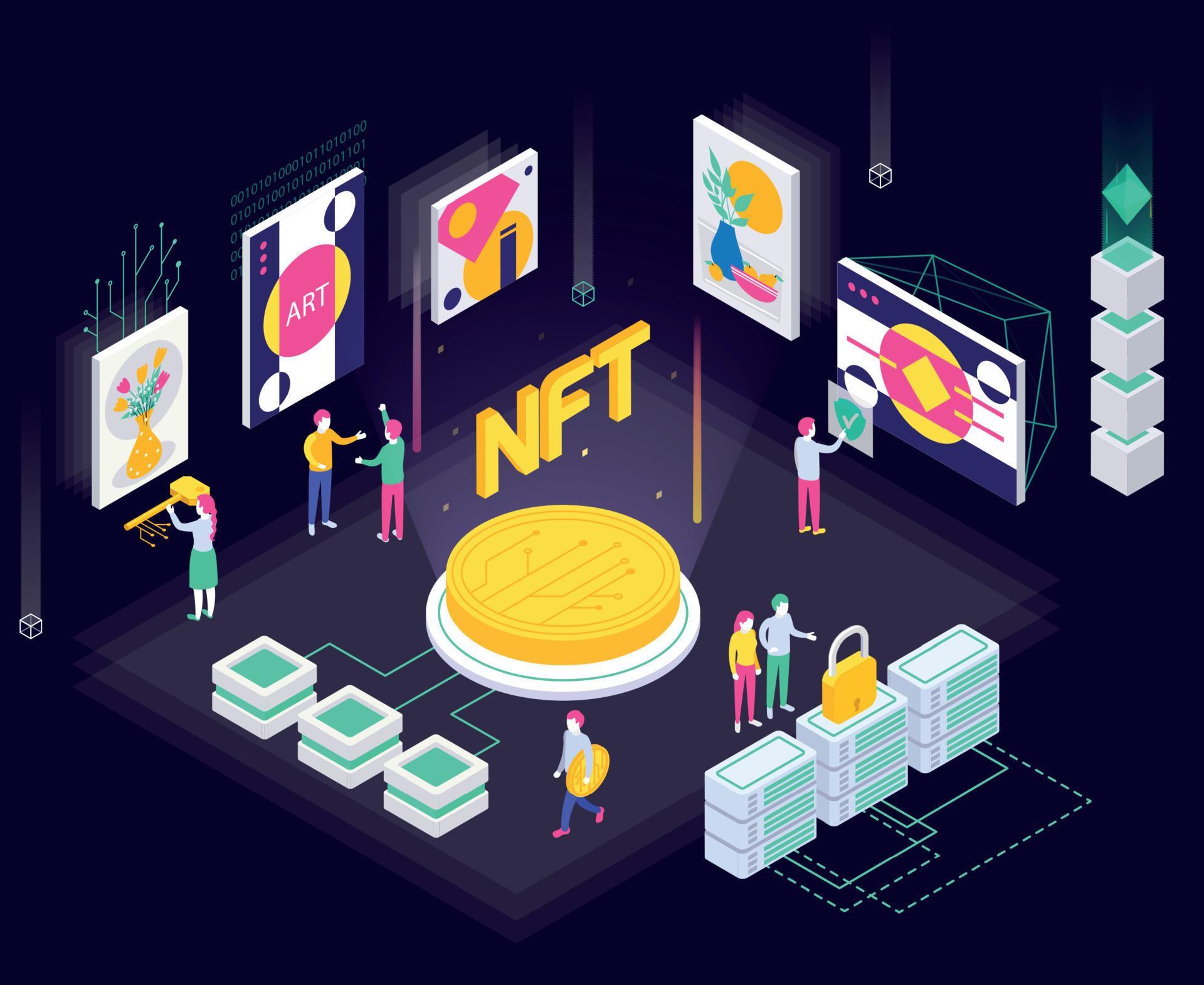Blockchains are increasingly being used in many fields. In fact, the technology is set to revolutionize how we manage sales, create contracts, and numerous other areas where data is created and stored. It is already being applied to many areas in the sporting industry, where its potential to make sports more accessible and engaging for fans is becoming evident.

How does Blockchain Technology work?
A blockchain is a decentralized database or ledger of digital transactions. It is distributed across many computers in a peer-to-peer network. The blockchain links sets of data, otherwise known as blocks, together in a chain. If the ledger is changed, copies of it are updated across the whole network.
Due to the chronological nature of the blocks and the way they are linked together, it is very difficult, if not nearly impossible, to change them. Therefore, the blockchain can be said to be ‘immutable’, which means it cannot be changed. Hackers would need a vast amount of computing power to break into these networks, which makes them very secure and transparent.
5 Ways Blockchain Technology revolutionise Sports
Commercial sports like football, horse racing, tennis, and golf are massive industries in their own right. They all generate huge amounts of money and have legions of fans. Of course, there are many other sports that are hugely popular and also have devoted fans. Blockchains can be used in sports for managing areas such as merchandising, ticket sales, and even handling player contracts.
1. Fan engagement
The sporting industry is always looking for new ways to get fans more involved in particular sports and sporting events. Blockchain offers a wealth of opportunities for getting fans involved. For example, the blockchain can provide a secure way for fans to vote on factors that can affect their team. Another application is the creation of tokens that fans can use to spend on loyalty programs. All transactions on the blockchain are recorded, so the club and the fans know that any transactions carried out will be legitimate and traceable. The transactions are also very fast and can have lower costs than traditional banking.
2. Sports betting
The field of sports betting and blockchain is growing rapidly. Many of the benefits of blockchain are very useful to sports betting. The decentralized nature of blockchain means that transactions can be carried out without the need for a middleman, like a bank. However, there are deeper uses for blockchain in this area. In the field of E-sports, the use of blockchain is becoming more prevalent. Entire tournaments can be set up using this technology. By using the blockchain, sponsors, players, managers, game developers, and other stakeholders can come together transparently, without the involvement of a central authority.
Decentralized betting platforms are being created, which have the ability to take on the big sports betting providers. The peer-to-peer nature of the blockchain means that there is no need for third-party involvement in the betting process. By cutting out the middleman, the betting process becomes more secure and more transparent.
Another reason for using blockchain in sports betting is that it brings anonymity. Participants do not have to use a lot of personal information to set up a blockchain account. Therefore, their privacy and identity can be protected.
3. Buying and selling tickets
Blockchain ticketing promises to revolutionize the way tickets are bought and sold. Two of the biggest challenges of selling tickets online are the prevention of scalping and fraud. Scalping is the practice of buying tickets for their original price, but then selling them on the secondary market for a hugely inflated price. The practice is commonplace and nearly impossible to prevent. Fraud is another issue. Sometimes fans buy tickets thinking they are authentic, only to realize that either the ticket doesn’t exist or it is a copy.
Blockchain can deal with both of these issues with ease. When a ticket is created on the blockchain, it cannot be changed or duplicated. Therefore, the ticket is totally authentic and cannot be sold. So, fraud and scalping become almost impossible. Also, because all transactions on the blockchain are recorded and are transparent, fraud becomes even more difficult.
4. NFTs
Non-fungible tokens (NFTs) are a kind of digital asset that runs on the blockchain. They are often referred to as crypto collectibles. Each one can be either totally digital or a tokenized version of something in the real world. NFTs in sports are a new and exciting way to increase fan engagement, by giving fans new ways to interact and support their team.

These tokens can be compared to old football player trading cards. By using blockchain technology, the NFTs become things that fans can collect. The variety of memorabilia that can be made into NFTs is vast. For example, fans can collect game badges, video snippets of key moments, and gifs. There has already been an instance of a video clip of LeBron James replicating a Kobe Bryant dunk, that sold for nearly $400,000 at auction in 2021.
5. Smart contracts
One of the most revolutionary aspects of blockchain technology is smart contracts. These contracts have the terms of the agreement written in code and are self-executing. They are programs that run on the blockchain and execute the next step when certain conditions are met. In the field of sports, these contracts have a huge range of applications. They can be used to issue tickets and even manage player contracts.
Wrapping Up
As you can see, blockchain technology has the potential to revolutionize many aspects of the sporting world. It can be used in a variety of ways to protect fans and enhance their engagement. We are already seeing the technology being used to create NFT memorabilia, increase fans’ involvement with team decision-making, sell tickets more securely, and even in the creation of sports betting platforms. The application of this technology in the sports world is only going to increase, and it will be used to enhance the experience of fans and their involvement in sports.
